Be straight with me: is there anything worse than the sting of sensitive teeth? By now, I’m sure we’ve all felt the pain that comes with eating ice cream or swigging a too-hot cup of coffee. But just the other week, my sensitive teeth got triggered by a chilly breeze. When just stepping foot out the front door causes your teeth to hurt, that’s when you know it’s bad.
At least 45 million Americans have tooth sensitivity [source]. While sensitive teeth are something you should chat with your dentist about, a few things can be done at home to soothe them. Here are some of my favorite tips for nipping tooth sensitivity in the bud.
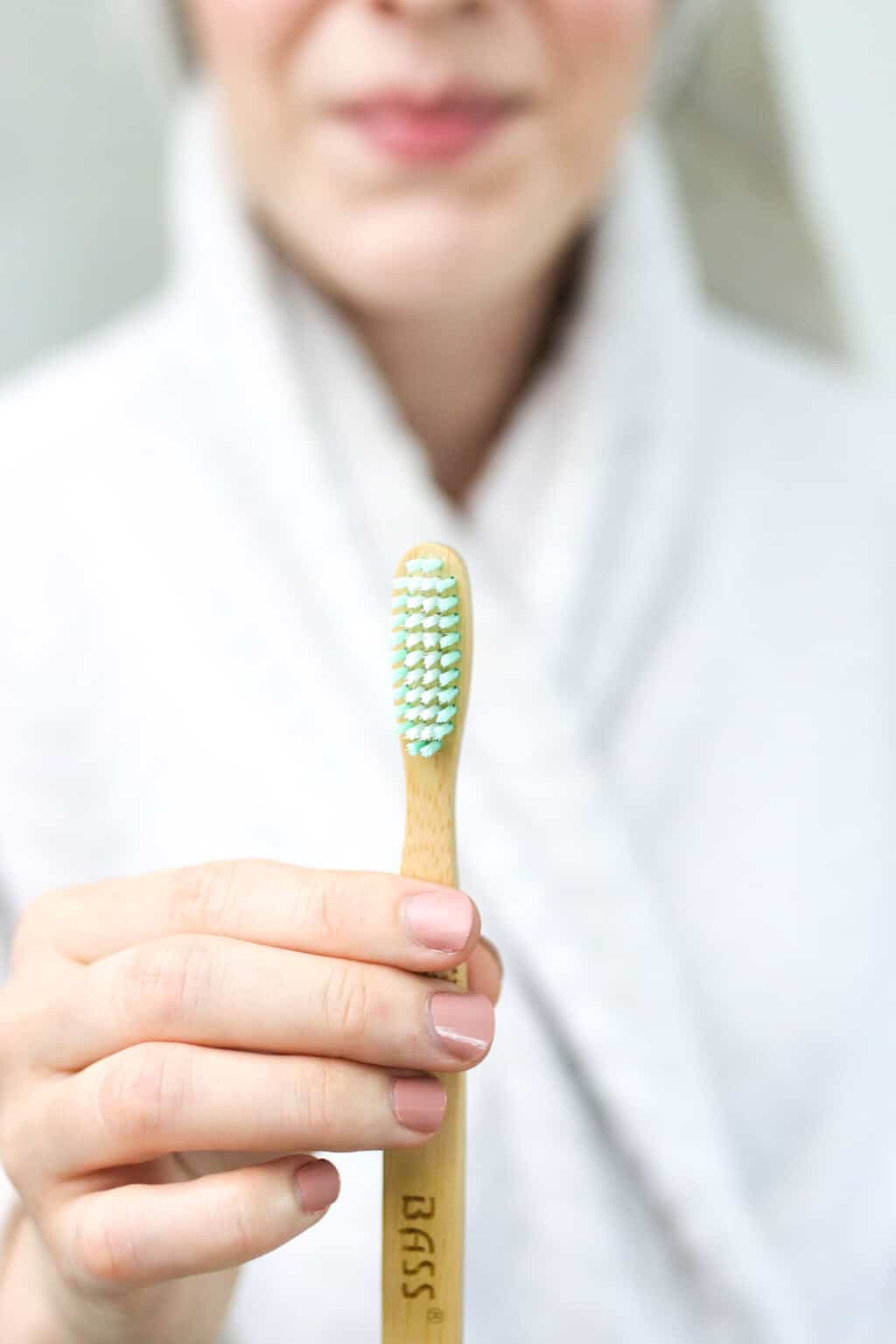
What causes sensitive teeth?
Teeth are made of several layers. The top layer, the enamel, is the hardest substance in your body, and it’s what seals in and protects your teeth. The layer just below that, the dentin, is usually what causes tooth sensitivity.
Dentin is the semi-soft mineral portion of the tooth, and it contains microscopic tunnels that lead to your dental nerves. When enamel wears down and the dentin is exposed to the elements (such as with hot or cold foods), the nearby nerves can get irritated and cause sharp pain to radiate through your teeth and gums.
9 Natural Remedies to Soothe Sensitive Teeth
But it’s not just the gradual wearing down of enamel that causes sensitive teeth. It can also be a result of:
—Tooth decay
—Poor brushing habits (either too rough or not enough)
—Excess plaque buildup
—Worn fillings
—Gum disease or a receding gum line
That’s why it’s really important not just to treat the pain but also to take a look at your dental hygiene habits and do everything you can to care for your teeth and gums properly.
A few easy changes you can make:
—keep regular dental visits to maintain the health of your teeth
—avoid acidic foods like red wine, carbonated drinks, coffee, and citrus fruits
—ease back on the pressure when you brush, and switch out your toothbrush for a softer bristle brush
—ask your dentist to check for teeth grinding—trust me, that can lead to all sorts of unpleasant tooth pains!
Ready to nip sensitive teeth in the bud?
1. Salt water
Sea salt is antiseptic and anti-inflammatory [source], so it’s long been used as a rinse to alleviate tooth pain and gum inflammation. It’s also loaded with minerals which may help replenish the minerals lost from a poor diet or less than stellar oral hygiene.
To get rid of sensitivity, make a salt water rinse by mixing ½ teaspoon of sea salt with 8 ounces of warm water and let it dissolve. Swish the mixture in your mouth for 30 seconds, letting the salt solution sink in between teeth and below the gum line, then spit it out.
2. Honey
Honey, especially the raw variety, is antibacterial and helps wounds heal more quickly [source]. When applied to gums, it reduces pain, swelling, and inflammation. Simply combine 1 teaspoon of organic raw honey with 2 tablespoons of warm water, and use it like a mouthwash.
3. Hydrogen peroxide
While it’s most often used as an antiseptic in wounds to prevent infection, hydrogen peroxide can also soothe painful, inflamed gums.
Mix 1 tablespoon of hydrogen peroxide with 1 tablespoon of lukewarm water. Swish the solution in your mouth for about 30 seconds, then spit it out and rinse with fresh water. Repeat up to 3 times a day.
4. Turmeric
Turmeric is a major anti-inflammatory—thanks to a compound called curcumin [source]. Freshly ground turmeric has been used in Ayurvedic medicine for centuries to reduce pain and swelling and encourage healing.
When using it for sensitive teeth, make a paste of 1 teaspoon of organic turmeric powder and ½ teaspoon of water. Apply it to the teeth, and massage it into your gums twice a day. And don’t worry about it staining teeth. Turmeric is said to have tooth whitening power, so you might even end up with a brighter smile.
5. Cloves
Cloves contain the active ingredient eugenol, which is a natural anesthetic, and researchers are exploring clove gel as a topical numbing agent [source]. The easiest way to take advantage of this natural pain reliever is with clove essential oil.
Mix 3 drops of clove essential oil with 1 teaspoon of olive oil in a small bowl. Using a cotton swab, gently dab the oil on the area that’s bothering you. Reapply every couple of hours for lasting relief.
6. Green tea
EGCG, a type of antioxidant found in green tea, has been shown to reduce the growth of bacteria in the mouth, with positive effects on reducing gum disease [source].
Brew up some organic green tea to use as a mouthwash or simply enjoy drinking 1 or 2 cups a day. Just be sure to rinse your mouth out or gently brush your teeth afterward to prevent staining.
7. Baking soda
Last time I went to the dentist, my hygienist recommended baking soda for my sensitive teeth. She says it discourages plaque formation and may even slow gum recession (as long as you’re mindful not to brush too hard when using it). It has also been shown to act as an oral antibacterial agent [source].
Either grab a baking soda toothpaste from the store or sprinkle baking soda directly on your toothbrush before brushing your teeth.
8. Oil pulling
I swear by oil pulling for all sorts of mouth issues. Coconut oil contains predominantly medium-chain fatty acids, 45–50% of which is lauric acid. Lauric acid has proven anti-inflammatory and antimicrobial effects [source].
Regular oil pullers report less sensitive gums and fewer cavities. A 2015 study showed that oil pulling using coconut oil could help decrease plaque formation and plaque-induced gingivitis [source].
Simply put a small dollop of coconut oil in your mouth and swish it around until it melts. Continue swishing for 15–20 minutes, then spit into a trash can. Avoid spitting the oil into the sink as it can build up over time and clog the drain.
9. Probiotics
Last but not least, probiotics may help restore the health of your teeth and gums. While they’re mostly known for their impact on the digestive system, research shows that probiotics may keep your mouth healthy, too.
Not only does probiotic bacteria decrease oral inflammation [source], but it can also reduce symptoms of gingivitis [source], which is a major cause of swollen, tender gums and sensitive teeth. Taking a daily probiotic supplement can have lasting mouth benefits, but a probiotic specifically tailored for the mouth may work even better.
This article was medically reviewed by Dr. Gina Jansheski, a licensed, board-certified physician with over 20 years of experience in practice. Learn more about Hello Glow’s medical reviewers here. As always, this is not personal medical advice, and we recommend that you talk with your doctor before using this recipe to determine what’s best for you.
71
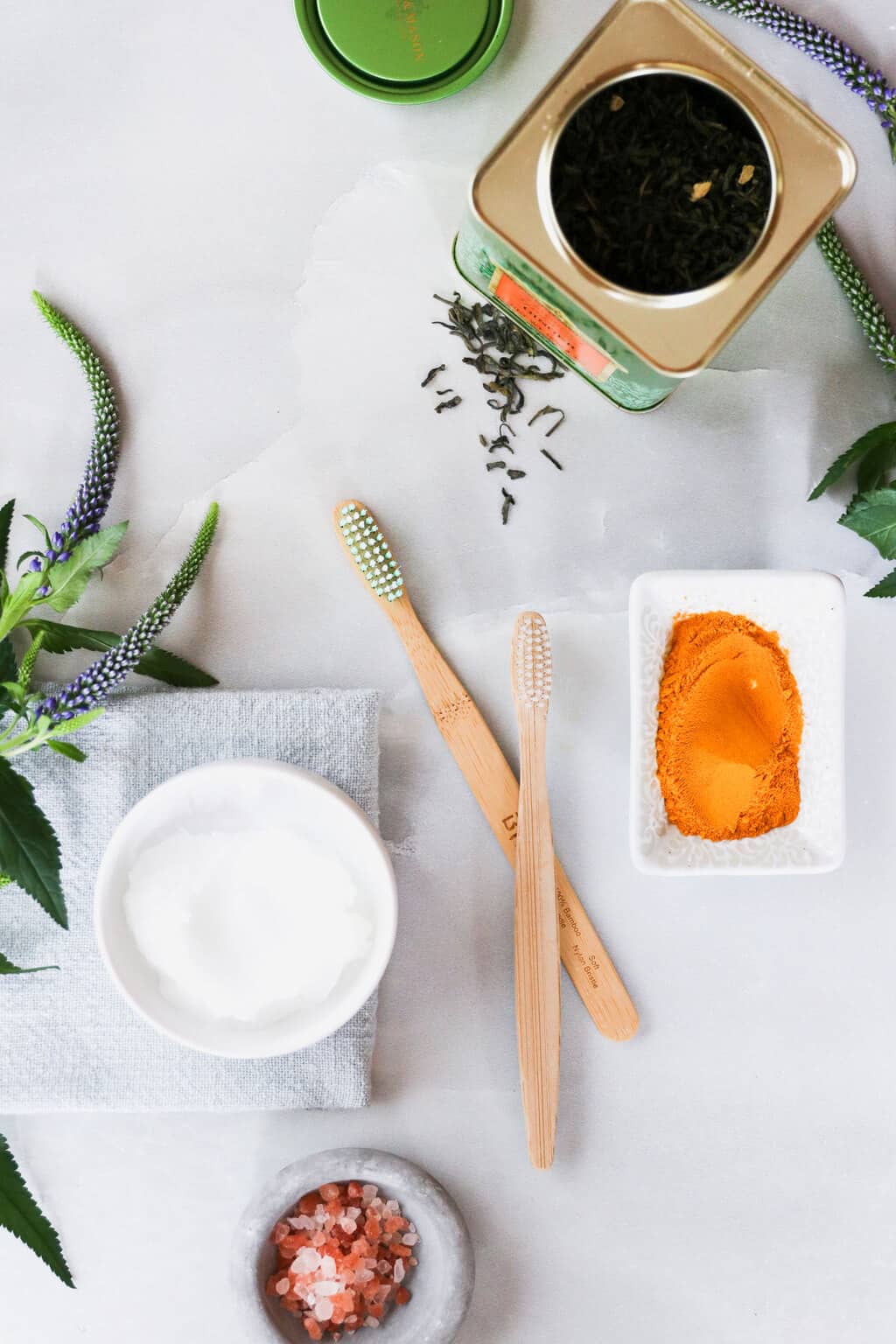
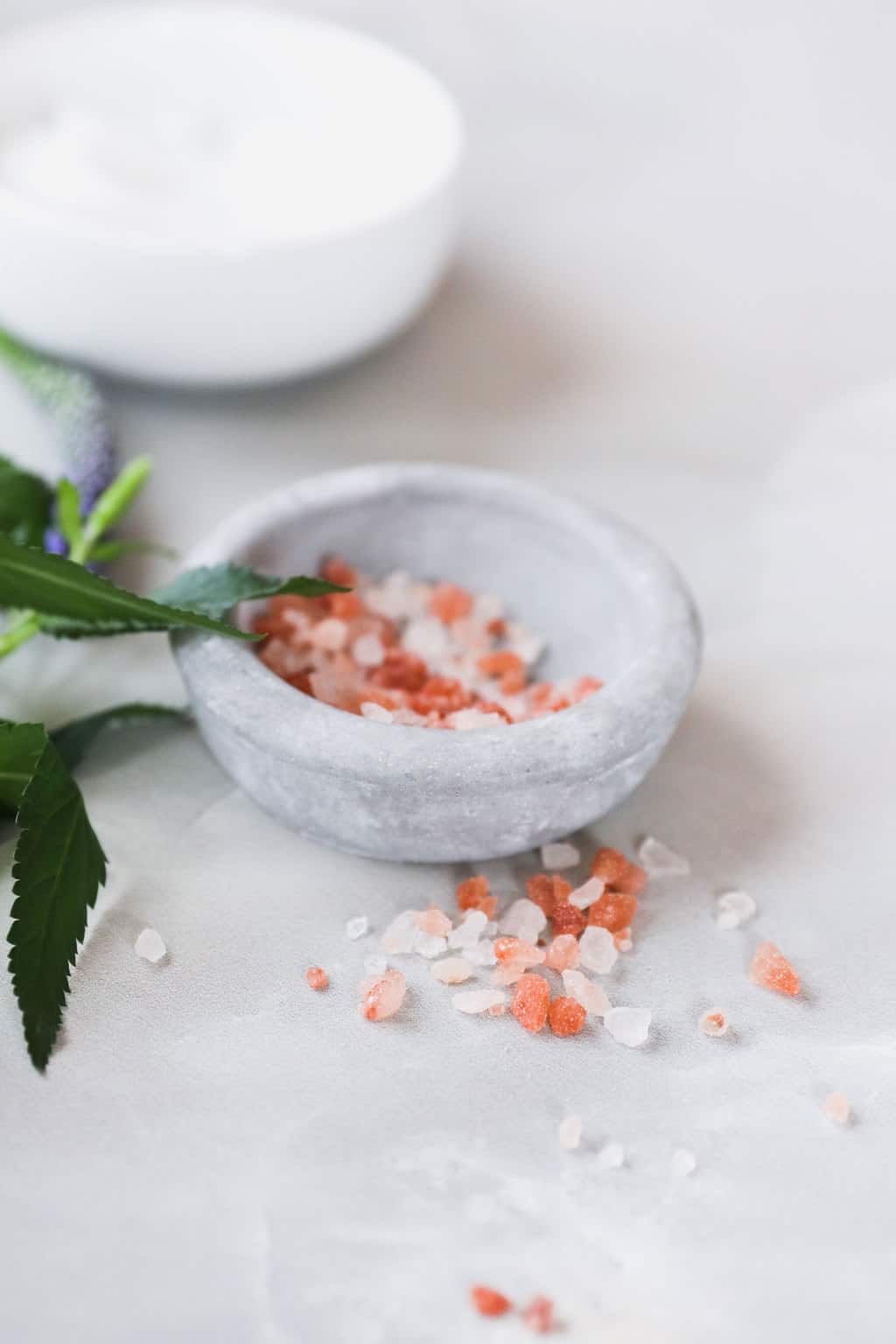
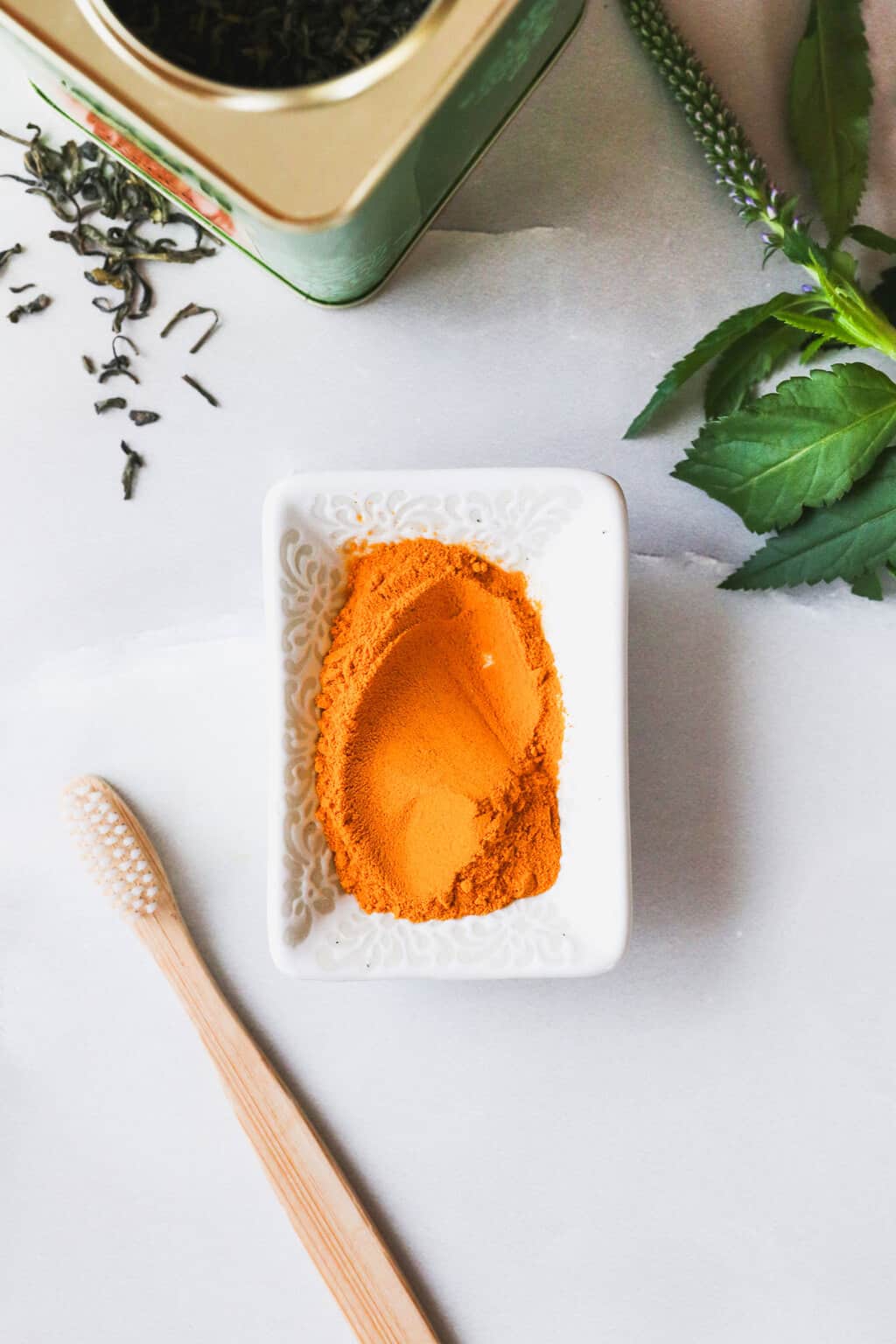
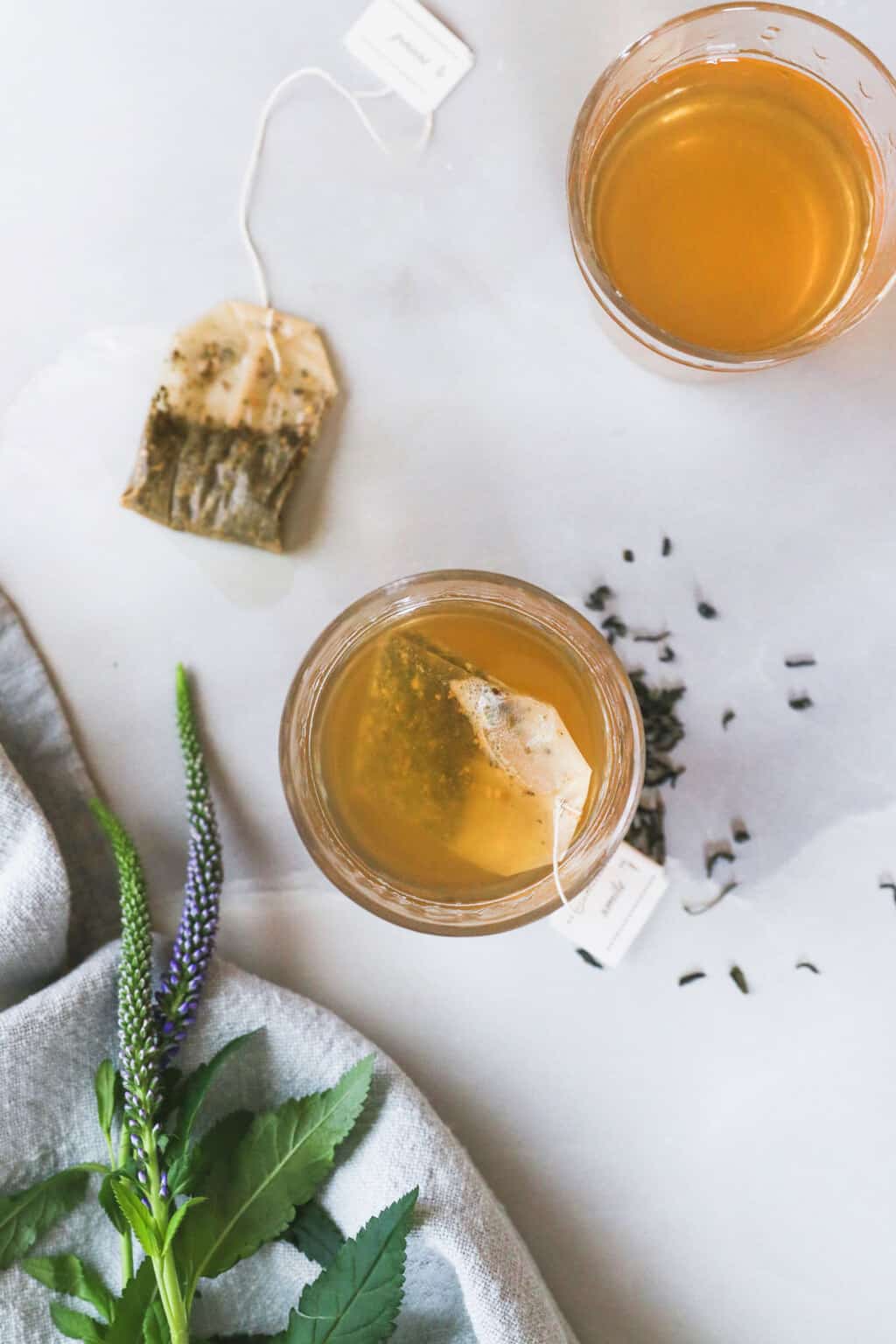
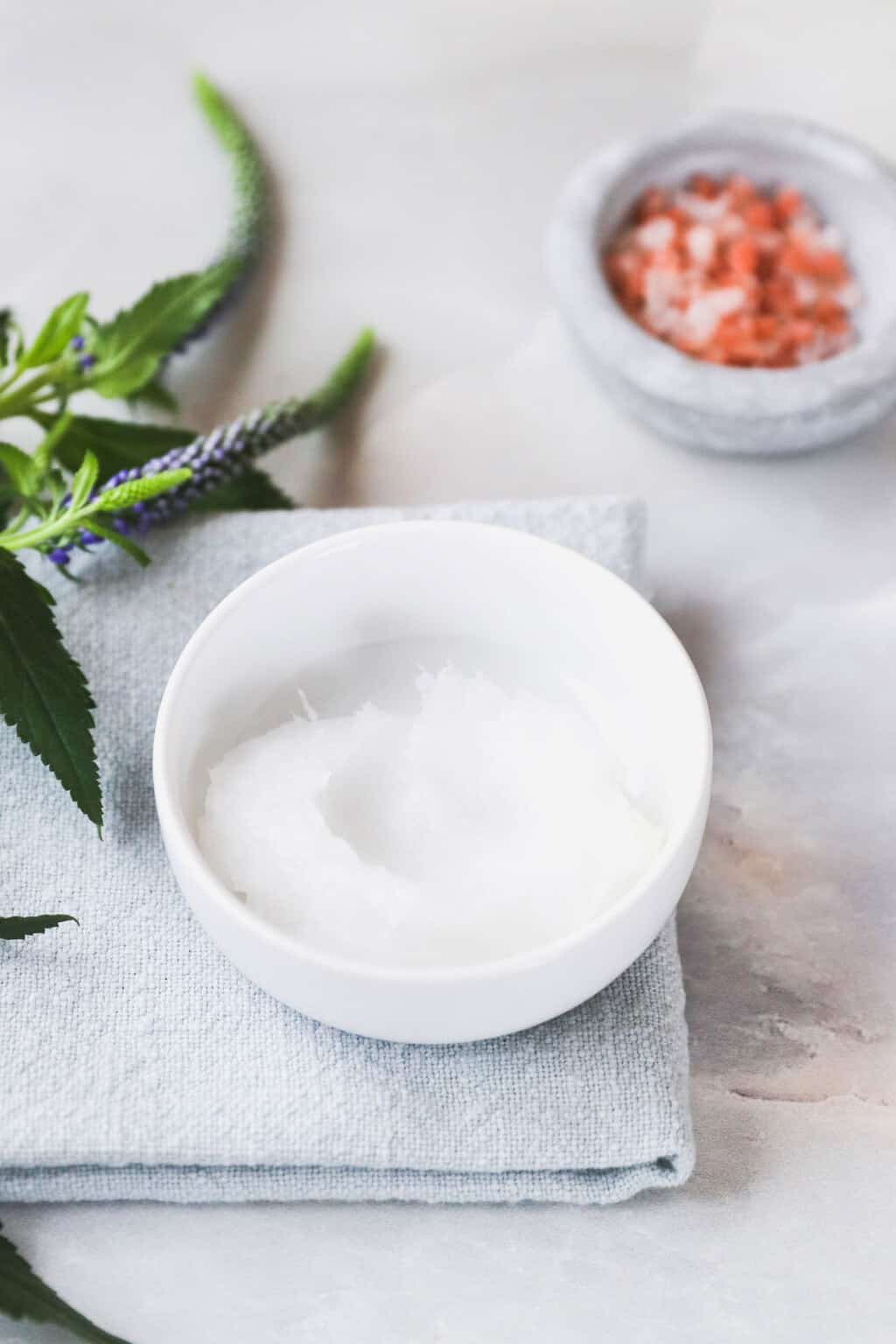

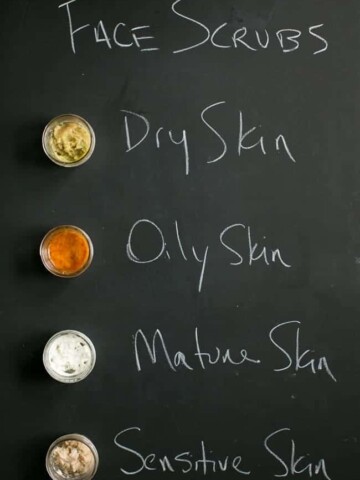
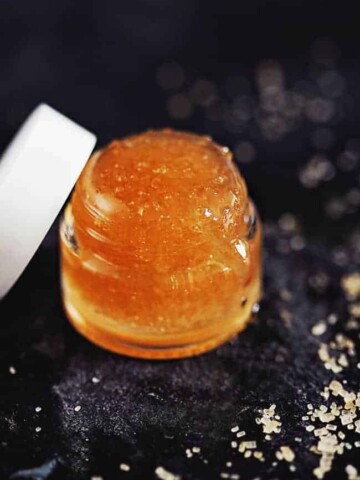
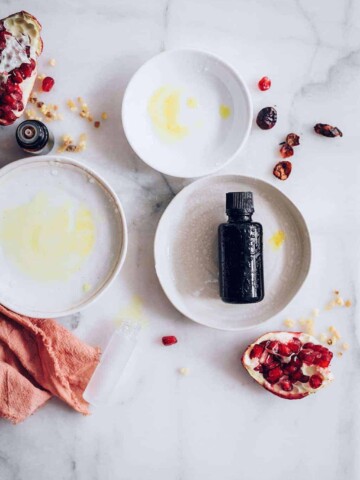
Leave a Comment